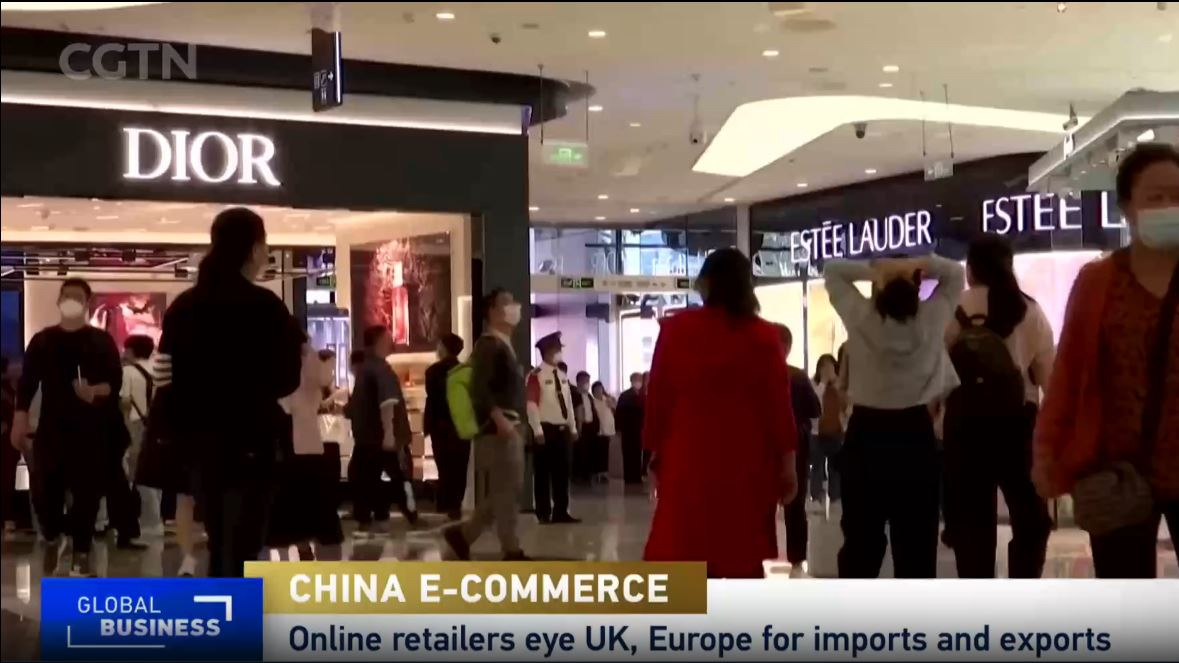02:55

Online shopping grew substantially during the pandemic but most of it was for local supplies. China is by far the world's largest e-commerce market, with over 580 million active customers. Now, the industry is looking to Europe for new outlets for imports and exports.
Most major western luxury brands now have a physical presence in China and also sell to an online market. Supply chain issues made international sales more difficult during Covid, but now that global trade is picking up, e-commerce companies are trying to expand into new markets.
There's a growing interest in China, particularly among younger people, to buy from smaller boutique European brands directly online. Now China's e-commerce industry is looking for ways to make this happen.
READ MORE
Animation: Restoration of Notre Dame
EXPLAINER: What are tactical nuclear weapons?
Why Chinese is so different to European languages

Supply chain issues limited international sales during COVID, but with global trade picking up e-commerce companies are trying to expand into new markets./CGTN.
Supply chain issues limited international sales during COVID, but with global trade picking up e-commerce companies are trying to expand into new markets./CGTN.
The annual China/Europe Cross Border E-Commerce Forum is taking place this week in Manchester.
Among the participants is Myles Barclay whose startup will provide a range of smaller prestige retailers, such as several of London's famous Savile Row men's outfitters, with an online presence in China.
"What you are seeing with Gen Z is a massive interest to connect with new brands and be more experimental," he explained. "I think in that case luxury is more personal to them. They are looking to connect with brands that really speak to them personally rather than traditional status symbols that maybe their parent's generation were. And this change in consumer behavior and demographics is what we are trying to tap into."
Barclay has signed a contract with China's giant logistics and online shopping portal JD, a one stop shop providing everything from the online marketplace to the logistical backup of getting the goods from the UK to China.
Kannon Qian, President of JD International Logistics, explained how the tie up works.

The annual China/Europe Cross Border E-Commerce Forum is taking place in Manchester this week, where are a host of startups are hoping to find out how to expand their businesses into the Chinese market./CGTN.
The annual China/Europe Cross Border E-Commerce Forum is taking place in Manchester this week, where are a host of startups are hoping to find out how to expand their businesses into the Chinese market./CGTN.
"They open a shop in the JD, we call it the JD global purchase, it's a platform especially for imported products from outside of China. So they open a shop there, so what we are doing is helping them to consolidate all their products in the UK and by airfreight we transport them back to China."
Kannon Qian is one of the keynote speakers at the Forum and says Chinese manufacturers are also looking to sell directly to online customers in Europe.
More and more Chinese companies are looking for new opportunities, new markets to expand their business, so I think this is a good thing for us. I believe the cross border business will recover after the pandemic situation but slowly, step by step," said Qian.
Yodel is a UK parcel delivery company where about 15% of its business is for goods coming from China and has an office in Chengdu.
Yodel's CEO Mike Hancox said the company is trying to get Chinese retailers to adapt to changing consumer habits in the UK.
"It's an important challenge with our Chinese importers to try and get deliveries into out of home locations not just to consumers' homes," he said. "I'm talking about pick up and drop off locations or lockers. Now to do that you need to be able to select that location when you are buying your product when you are in the check out basket of you retailers. So we need to work now with the Chinese retailers to be able to have that as an option.”
The main theme of this week's Europe–China e-commerce forum is on improving logistics post pandemic, with major players from both Europe and China working together to explore industry developments and innovation.
Subscribe to Storyboard: A weekly newsletter bringing you the best of CGTN every Friday